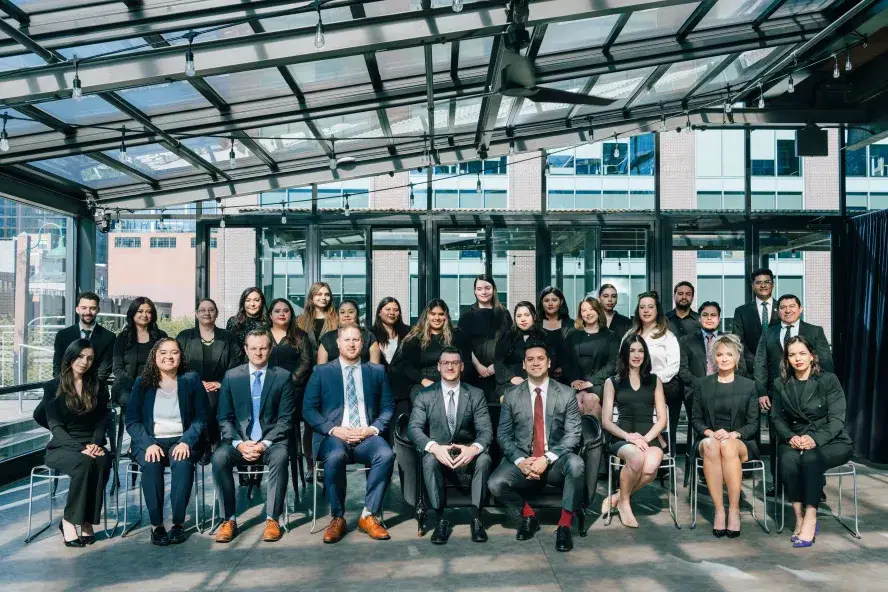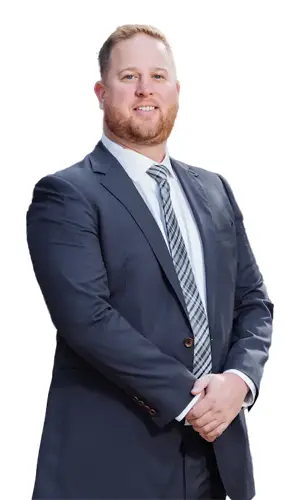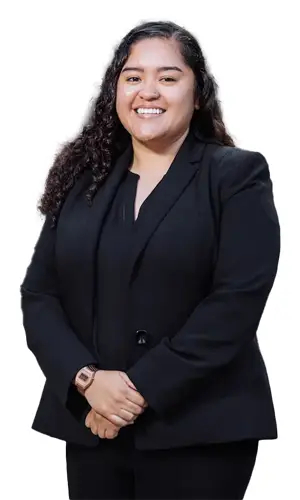From negotiations to courtroom advocacy, our dedicated lawyers are committed to securing the compensation and justice you deserve.
"*" indicates required fields

Property owners have a legal duty to provide a safe property for visitors. When businesses and other property owners fail to uphold this responsibility to visitors and customers, they are putting these individuals at risk for severe injuries and other life-changing damages. Fortunately, our skilled Chicago personal injury attorneys can help you file a claim if you suffered injuries due to hazardous property conditions.
A premises liability claim allows you to hold a property owner liable for the damages and injuries you suffered while on their property. A dedicated Chicago premises liability lawyer could provide guidance and help you seek compensation for your injuries.

Julio A. Costa is a co-founder of Costa Ivone, LLC, specializing in personal injury and workers’ compensation cases. He brings a wealth of experience to the firm, having successfully represented numerous clients in workers’ compensation claims.
“Julio’s expertise and dedication were invaluable. He guided me through the entire process and ensured I received the best possible outcome.”
– Sarah W., Joliet
Anthony L. Ivone, co-founder of Costa Ivone, LLC, has extensive experience handling workers’ compensation cases. He is known for his aggressive representation and compassionate client care.
Achieved a $2.75 million verdict for a severe bicycle accident case.
“Anthony was incredible throughout my case. His dedication and expertise were evident, and I couldn’t have asked for a better outcome. Thank you, Iván!” – Michael R., Joliet


Jordan R. Browen has dedicated his entire career to fighting for the rights of injured workers. He has successfully litigated numerous workers’ compensation cases before the Illinois Workers’ Compensation Commission and handled appeals in Illinois Circuit and Appellate Courts.
Won a $1.3 million permanent total disability case.
“Jordan’s attention to detail and creative solutions ensured I received not just a check at the end of my claim, but peace of mind for my future.”
– Anonymous Client
Stefani Perez focuses her practice on representing injured individuals, including those with personal injury and workers’ compensation claims. She provides diligent and focused representation to her clients.
Secured a significant settlement for a workplace accident in North Chicago.
“Stefani’s attention to detail and compassionate approach made a huge difference in my case. I felt supported and confident throughout the process.” – Carlos M., North Chicago

When dangerous conditions exist on a property, an individual is at risk of suffering severe and potentially life-altering injuries. There is no exhaustive list of the injuries that an accident on a property may cause, but some injuries that often result from these accidents include:
Every premises liability claim is different, but an attorney in Chicago could aid in determining available legal options for an injured person against the property owner or occupier.
A property owner or business has a duty of care to provide and maintain a safe premises for those who visit. This duty of care specifically extends to invitees and licensees.
Invitees and licensees are people who are permitted, by the property owner or occupier, to be on the property. Some examples of invitees and licensees include customers, houseguests, applicants for a job, police officers and firefighters, delivery people, and others allowed on the property for a purpose that benefits the property owner or occupier.
A property owner owes a duty of reasonable care to individuals who are invitees or those who have licenses on a property. Exercising reasonable care may include fixing conditions that may pose unreasonable risks to the invitee or licensee or warning them about dangerous conditions they would not reasonably discover. Failing to exercise the duty of reasonable care to invitees or licensees could cause a landowner to be found negligent under premises liability.
A trespasser is described as any person who is not permitted, by the property owner or occupier, to be on the premises. Some common examples of trespassers include individuals who entered the property to commit a crime, while committing a crime, or someone who entered without permission from the property owner.
Unlike the landowner’s duty to invitees and licensees, the duty of care owed to trespassers is less burdensome under state law. The owner is not permitted to willfully or wantonly injure any trespasser, but they are also under no duty to make the property safe for a trespasser under 740 Illinois Compiled Statutes 130/3. There are a few exceptions to this rule that could make a property owner liable, including:
Property owners often use trespassing as a common defense in premises liability cases, but an experienced Chicago lawyer could provide ample evidence to help an injured person’s claim.
Yes, workers comp can stop paying you in Illinois if your employer or their insurance company believes that you are no longer eligible for benefits. This can occur if a doctor determines you have recovered sufficiently to return to work, if you refuse a suitable job offer, or if your claim is disputed.
In Illinois, you can choose your own doctor for workers’ comp under the “two-physician” rule. You may select up to two doctors and any referrals they make. However, if your employer has a preferred provider program (PPP), you must choose from that list unless you opt-out in writing.
In Illinois, employers with one or more employees are required to provide workers’ compensation insurance. This applies to almost all businesses, regardless of the number of employees.
The statute of limitations for filing a workers’ compensation claim in Illinois is generally three years from the date of the injury, or two years from the last payment of compensation, whichever is later. It’s crucial to file within this timeframe to maintain your right to benefits.
In Illinois, you cannot sue your employer directly for a workers’ compensation claim as the system is designed to be a no-fault solution. However, if your employer fails to pay you the benefits you are owed, you can file a claim with the Illinois Workers’ Compensation Commission.
To claim workers’ comp in Illinois, notify your employer about the injury as soon as possible, ideally within 45 days. Seek medical treatment and inform the healthcare provider that the injury is work-related. Then, file a claim with the Illinois Workers’ Compensation Commission to start receiving benefits.
Workers’ comp in Illinois typically pays 66 2/3% of your average weekly wage, subject to state minimum and maximum limits. This payment is meant to compensate for lost wages while you are unable to work due to a work-related injury.
In Illinois, if you’re out due to a work-related injury, you typically don’t need to use your vacation time. Workers’ compensation provides wage replacement and medical benefits, so your time off is covered through that program instead. Always check your employer’s policies or consult a legal expert for specific details.
Accruing vacation while on workers’ compensation in Illinois depends on your employer’s policies. Some employers may allow vacation time to continue accruing, while others may not. It’s best to check your company’s specific policies regarding vacation accrual.
The statute of limitations on workers’ comp claims in Illinois is generally three years from the date of the injury, or two years from the last payment of compensation, whichever is later. It is important to adhere to these deadlines to ensure your right to benefits.
If you have been injured and believe that someone else was to blame, do not try to reach a settlement on your own. You need an advocate who could stand up to defense lawyers and insurance companies, and not be intimidated into accepting an inadequate settlement.
From negotiations to courtroom advocacy, our dedicated lawyers are committed to securing the compensation and justice you deserve.
"*" indicates required fields

Property owners have a legal duty to provide a safe property for visitors. When businesses and other property owners fail to uphold this responsibility to visitors and customers, they are putting these individuals at risk for severe injuries and other life-changing damages. Fortunately, our skilled Chicago personal injury attorneys can help you file a claim if you suffered injuries due to hazardous property conditions.
A premises liability claim allows you to hold a property owner liable for the damages and injuries you suffered while on their property. A dedicated Chicago premises liability lawyer could provide guidance and help you seek compensation for your injuries.
When dangerous conditions exist on a property, an individual is at risk of suffering severe and potentially life-altering injuries. There is no exhaustive list of the injuries that an accident on a property may cause, but some injuries that often result from these accidents include:
Every premises liability claim is different, but an attorney in Chicago could aid in determining available legal options for an injured person against the property owner or occupier.
A property owner or business has a duty of care to provide and maintain a safe premises for those who visit. This duty of care specifically extends to invitees and licensees.
Invitees and licensees are people who are permitted, by the property owner or occupier, to be on the property. Some examples of invitees and licensees include customers, houseguests, applicants for a job, police officers and firefighters, delivery people, and others allowed on the property for a purpose that benefits the property owner or occupier.
A property owner owes a duty of reasonable care to individuals who are invitees or those who have licenses on a property. Exercising reasonable care may include fixing conditions that may pose unreasonable risks to the invitee or licensee or warning them about dangerous conditions they would not reasonably discover. Failing to exercise the duty of reasonable care to invitees or licensees could cause a landowner to be found negligent under premises liability.
A trespasser is described as any person who is not permitted, by the property owner or occupier, to be on the premises. Some common examples of trespassers include individuals who entered the property to commit a crime, while committing a crime, or someone who entered without permission from the property owner.
Unlike the landowner’s duty to invitees and licensees, the duty of care owed to trespassers is less burdensome under state law. The owner is not permitted to willfully or wantonly injure any trespasser, but they are also under no duty to make the property safe for a trespasser under 740 Illinois Compiled Statutes 130/3. There are a few exceptions to this rule that could make a property owner liable, including:
Property owners often use trespassing as a common defense in premises liability cases, but an experienced Chicago lawyer could provide ample evidence to help an injured person’s claim.

Julio A. Costa is a co-founder of Costa Ivone, LLC, specializing in personal injury and workers’ compensation cases. He brings a wealth of experience to the firm, having successfully represented numerous clients in workers’ compensation claims.
Secured a $1.5 million settlement for a construction worker injured on the job in Joliet.
“Julio’s expertise and dedication were invaluable. He guided me through the entire process and ensured I received the best possible outcome.”
– Sarah W., Joliet
Anthony L. Ivone, co-founder of Costa Ivone, LLC, has extensive experience handling workers’ compensation cases. He is known for his aggressive representation and compassionate client care.
Achieved a $2.75 million verdict for a severe bicycle accident case.
“Anthony was incredible throughout my case. His dedication and expertise were evident, and I couldn’t have asked for a better outcome. Thank you, Iván!” – Michael R., Joliet


Jordan R. Browen has dedicated his entire career to fighting for the rights of injured workers. He has successfully litigated numerous workers’ compensation cases before the Illinois Workers’ Compensation Commission and handled appeals in Illinois Circuit and Appellate Courts.
Won a $1.3 million permanent total disability case.
“Jordan’s attention to detail and creative solutions ensured I received not just a check at the end of my claim, but peace of mind for my future.”
– Anonymous Client
Stefani Perez focuses her practice on representing injured individuals, including those with personal injury and workers’ compensation claims. She provides diligent and focused representation to her clients.
Secured a significant settlement for a workplace accident in North Chicago.
“Stefani’s attention to detail and compassionate approach made a huge difference in my case. I felt supported and confident throughout the process.” – Carlos M., North Chicago

Taking the right steps after an accident can strengthen your claim for damages. Here’s what to do immediately:
In personal injury cases, victims are entitled to various forms of compensation, which may include:
These cover out-of-pocket expenses such as medical bills, lost wages, and future healthcare costs.
Compensation for emotional distress, pain and suffering, loss of enjoyment of life, or disability caused by traumatic injuries.
In cases of extreme negligence or willful misconduct, additional damages may be awarded as punishment for the defendant.
At Costa Ivone, LLC, our experienced lawyers will ensure that you pursue all eligible damages. Feel free to read what our clients have to say about working with us.
Navigating the legal landscape after an injury can be deeply overwhelming, not just because of the complexity, but because of the emotional and physical toll it takes on you and your family. Whether you’re grappling with insurance claims or facing the daunting task of negotiating with negligent parties, having a personal injury lawyer by your side is not just beneficial—it’s crucial. Here’s why:
You can always check our FAQ for answers to common personal injury-related questions.
At Costa Ivone, LLC, we specialize in a wide range of personal injury cases, including:
Work-related accidents can have devastating consequences. Whether you’ve been injured in a construction accident or suffered a repetitive strain injury, our work injury attorneys in Chicago will help you navigate the complex workers’ compensation process.
When healthcare providers make mistakes, the consequences can be life-threatening. Our medical malpractice lawyers will hold negligent doctors, nurses, and hospitals accountable for their actions, ensuring that you receive compensation for your injuries.
Property owners have a duty to keep their premises safe. If you’ve been injured in a slip and fall accident, our team will work to prove the owner’s negligence and recover compensation for your injuries.
To recover damages, you must prove that the accident was caused by another party’s negligence. Negligence means failing to take reasonable precautions to prevent harm. For example:
Comparative Negligence in Illinois: Sometimes an injured person might have contributed in some way to an accident or failed to seek necessary medical care, exacerbating the severity of their injuries. Under Illinois law, specifically 735 Illinois Consolidated Statutes §5/2-1116(c), an injured person who bears some fault for the accident can still collect reduced damages, as long as they were not primarily responsible. Consulting a local personal injury attorney can be crucial, as you may still be entitled to collect damages from other negligent parties, even if partially at fault.
Even if you are partially at fault for the accident, you may still be able to recover damages under Illinois’ comparative negligence laws. Our Chicago injury lawyers will help you gather the necessary evidence to prove negligence and secure the compensation you deserve.
If you or a loved one has been injured due to someone else’s negligence, contact Costa Ivone, LLC today. Our personal injury attorneys in Chicago are ready to provide the expert guidance and aggressive representation you need. Call us for a FREE consultation and let us help you on your path to recovery.
Damages include economic damages (medical bills, lost wages) and non-economic damages (pain and suffering). In rare cases, punitive damages may be awarded for gross negligence.
Personal injury settlements vary depending on the severity of the injury and damages incurred. Settlements typically range from a few thousand to millions.
Compensation covers medical expenses, lost wages, and the emotional distress caused by an injury due to someone else’s negligence
Yes, pain and suffering can be claimed as part of non-economic damages in a personal injury case.
Damages are calculated based on medical bills, lost earnings, and emotional distress. Non-economic damages, such as pain and suffering, may use a multiplier.
The first step is to seek medical attention and consult with a personal injury lawyer Chicago to understand your legal options.
Yes, most personal injury cases involve negligence, where the other party failed to act with reasonable care.
Damages include economic (medical bills, lost wages) and non-economic (pain and suffering) damages. Punitive damages may apply in rare cases.
In Illinois, you typically have two years to file a personal injury claim, as defined by the statute of limitations.
Legally, an injury refers to physical, emotional, or mental harm caused by another party’s negligence or intentional actions
If you have been injured and believe that someone else was to blame, do not try to reach a settlement on your own. You need an advocate who could stand up to defense lawyers and insurance companies, and not be intimidated into accepting an inadequate settlement.